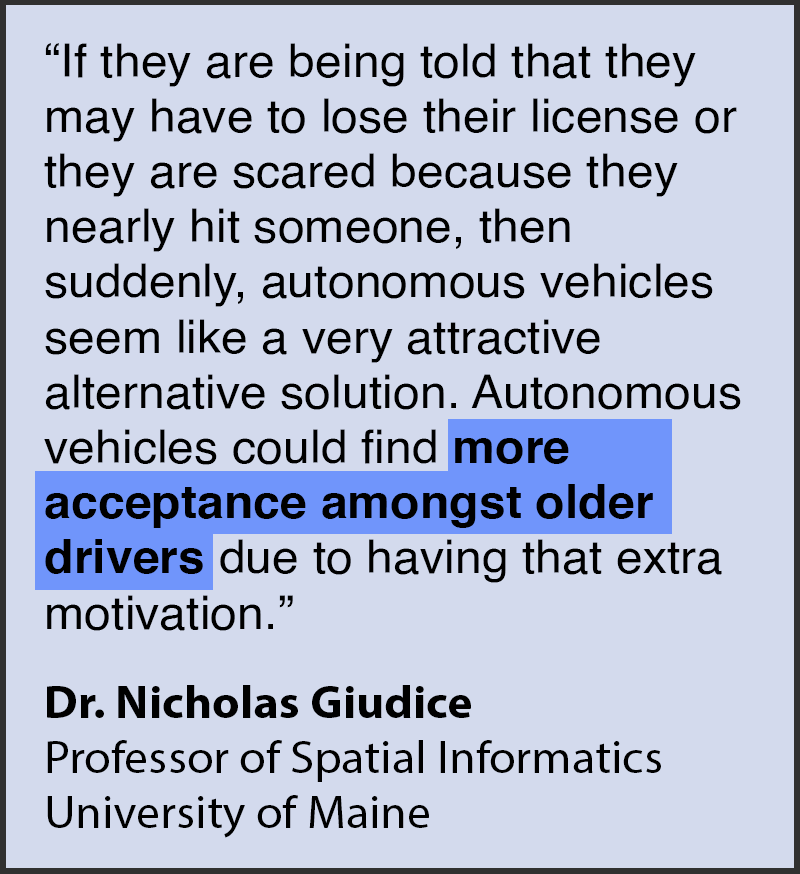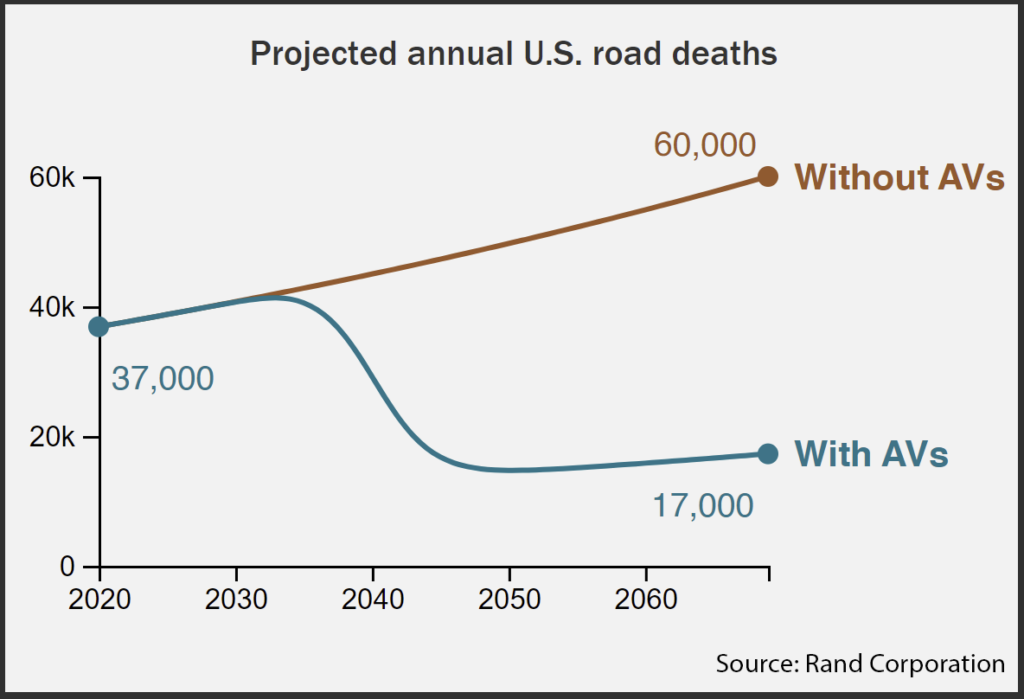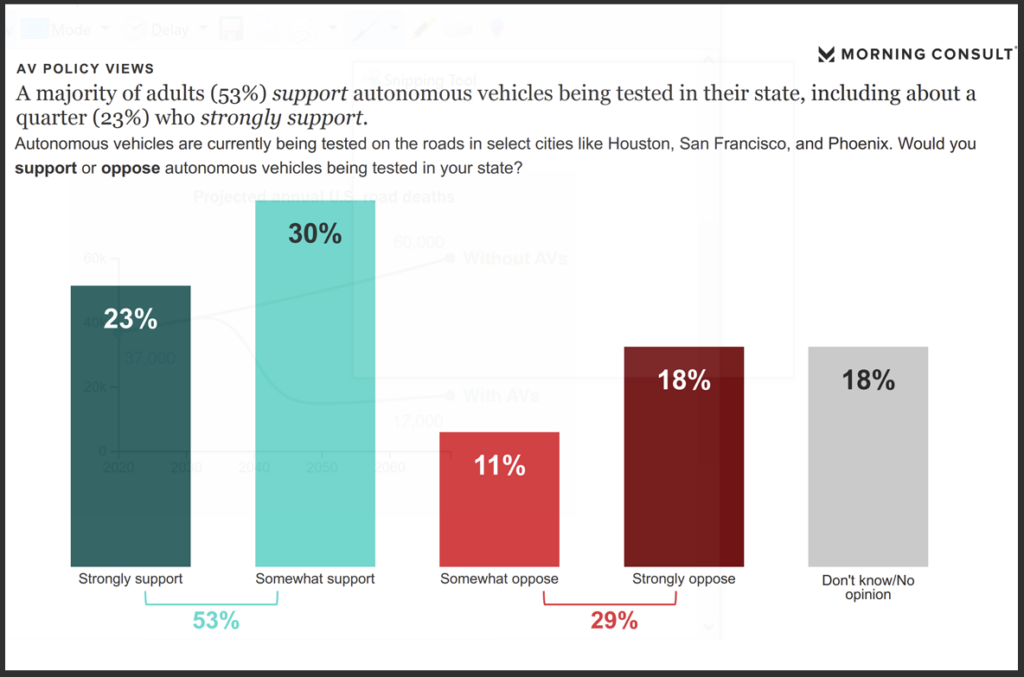Ask most Americans about the benefits that come to mind when they think of autonomous, self-driving vehicles, and you’ll probably get an answer close to “I won’t have to focus on driving.” While most Americans drive regularly, polling shows few actually enjoy it.
But when autonomous vehicles (AVs) are actually deployed across the country, the changes are going to be much more sweeping than a commute spent reading. AVs have the potential to change transit in a way that empowers non-driving communities, reduces traffic fatalities, and shrinks our nation’s carbon footprint.
Here are a few of the biggest benefits that AVs will deliver in the U.S.
Mobility for disabled Americans, seniors, and other non-drivers
The National Federation of the Blind argues that blind and low-vision people will be one of the largest beneficiaries of autonomous vehicle deployment. Why? Because AVs represent a reliable and affordable pathway to enhanced independence, and ultimately, to equality.

Right now, more than 70% of working age adults in the blind community are not working full-time. AV technology is a ticket to the workplace and other opportunities that many blind people previously found difficult or impossible to access.
But members of the blind community won’t be the only ones to benefit. Experts in the field also predict that older generations, and particularly people who have some manner of physical impairment, will benefit significantly from AV technology.
Polling commissioned by Chamber of Progress actually shows that when voters are provided with reasons to support widespread AV deployment, this mobility benefit is one of the most powerful arguments in favor of Autonomous Vehicles.
Fewer traffic fatalities
Transportation Secretary Pete Buttigieg may have put it best in an interview last year, when he said, “The status quo is clearly unacceptable. To put it bluntly, human drivers don’t have the best track record.”
Research shows 90 percent of car crashes are caused by human error. By eliminating human error, AVs can reduce fatal accidents. Studies suggest putting AVs on the road now could save hundreds of thousands of lives over the long term.

As human drivers, we’re also limited in our ability to fully sense our environment. While we have two eyes and two ears, autonomous vehicles are constantly scanning all 360 degrees of our environment, using dozens of visual, radar and lidar sensors to detect possible threats to our safety.
And as a recent CNN article points out, AVs are also better at obeying traffic laws. They always come to a complete stop, they don’t drive drunk, and they can’t fall asleep at the wheel.
Environmental benefits
As wildfires, rising sea levels, and natural disasters devastate whole areas of the United States, we should be using every tool at our disposal to combat climate change.
AVs have an important role to play in our fight against global warming.
Most AVs will be electric, and many others are hybrids. That’s largely because electric vehicle (EV) technology and AV technology complement one another. Electric vehicles are easier for computers to control than traditional vehicles, and combining EV and AV technology maximizes cost and fuel savings. Plus, AVs drive more efficiently than humans can.
By 2050, autonomous electric vehicles could reduce greenhouse gas emissions (GHGs) from cars and trucks—the biggest source of transportation emissions—by 80 percent.
Support Among Democratic Constituencies
It’s clear that action is needed to support the deployment of advanced AV technology on America’s roads – and that could be an opportunity for a political win for the Biden Administration and Congress.
Recent polling conducted by Chamber of Progress shows that a super-majority of Democratic voters are ready to introduce self-driving cars, not just on the roads, but in their own communities. The sentiment was even stronger among labor union members, three-quarters of whom supported AVs being tested in their state.
The overwhelming support for AVs also extends to congressional action. Our poll shows that a majority of Democrats (54%) and two thirds of union members (68%) say they support proposals in Congress to increase AV development and deployment.

With all of the mobility, safety, and environmental benefits AVs have to offer, advancing the deployment of AV technology on our roads is an easy win-win-win for our nation’s lawmakers.